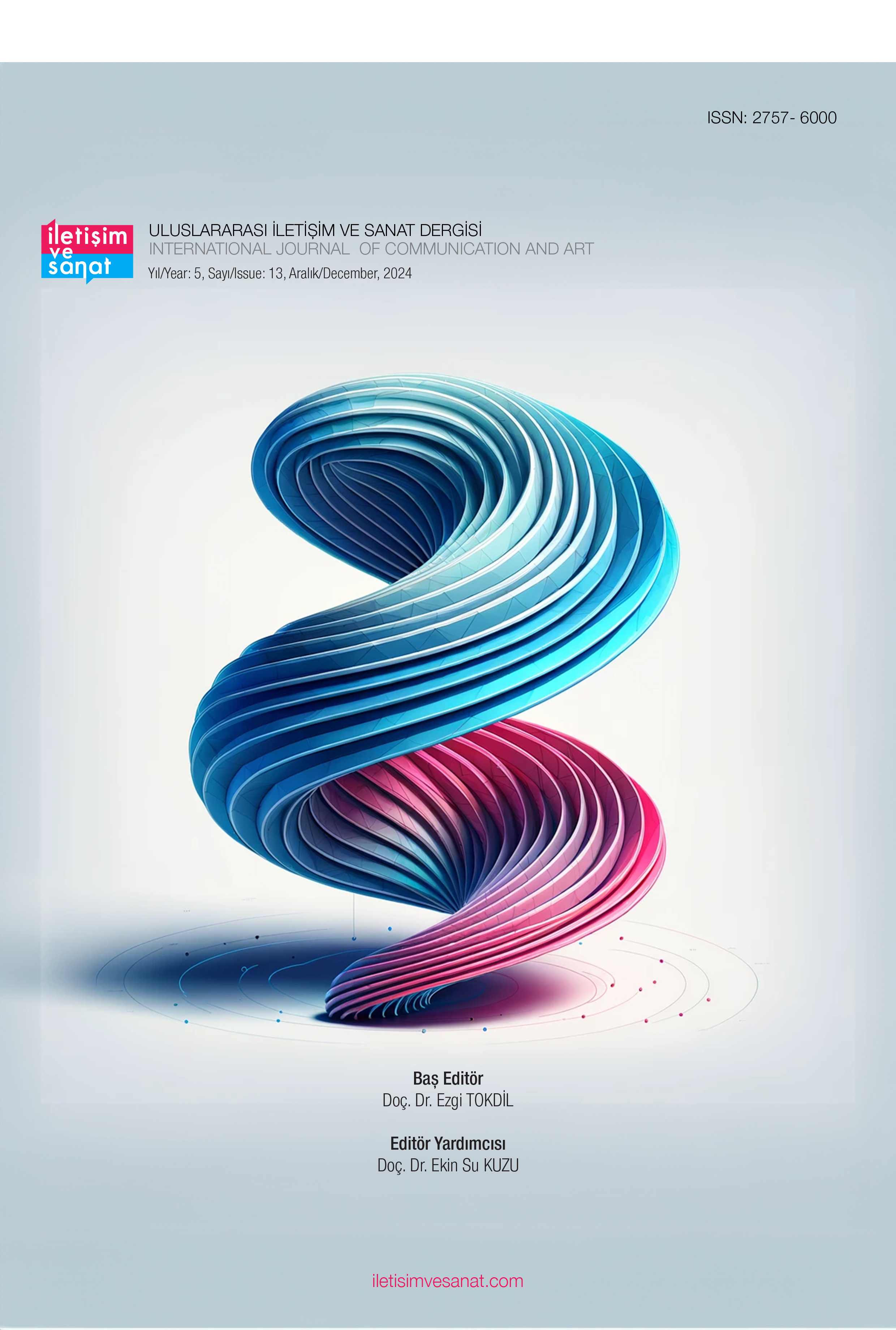Author :
Abstract
Günümüz Post modern olarak ya da farklı kavramlarla tanımlanan (Post modern, Neo-Liberalizm, Küreselleşme, Enformasyon Toplumu, Post-Fordist Toplum, Post-modern toplum) günümüzde kimlik sabit olmayan değişken ya da akışkan çoklu bir özelliğe sahiptir. Özellikle de kimlik sorunu önemli bir olgu olarak karşımıza çıkmaktadır. Tüketim kültürü ya da tüketim toplumu olarak da adlandırdığımız bugün, kimliğin tanımı oldukça karmaşık gibi görünüyor. Modernizm’in evrenselci ve tekçi değerlerine karşı, bir kurtuluş olarak önerilen çok parçalı ve çok odaklı post modern kültür ideolojisi ya da küreselleşme siyasetinin üzerinde durduğu en önemli olgu kimliktir.
Bu yenidünya düzeni ya da farklı isimlerle adlandırabileceğimiz bu durumda biz kimiz sorusu önemli bir hale gelmiştir. Biz gerçekten kimiz? Bir yanımızla yerele bağımlı bir yanda küresel kültüre endeksli, çoklu kültürlere sahip melez bir kimliğe sahip bireyler miyiz? Bütünüyle küresel tüketim siyasetinin araçları haline gelmiş metalar durumunda mıyız? Çünkü tüketim kültürü içinde kimliklerimiz tüketebildiğimiz nesnelerle ilişkilendirilir hale gelmiştir. Descartes’in “ Düşünüyorum öyleyse varım” sözü bugün geçerliliğini yitirmiş, “ tüketiyorum öyleyse varım” söylemi geçerli hale gelmiştir. Tüketebildiğimiz ölçüde özgür, tüketebildiğimiz kadar kimlikliyiz artık. Tüketime özendirilmiş bireylerin yeni mabetleri haline gelmiş devasa alışveriş merkezleri bireyin kutsanmasına, günahlarından arınmasına yardımcı olan geçmişin katedrallerinin yerini almıştır.
Böylesi bir dünyada bireyin kendini ait hissedeceği evren içerisinde konumlanacağı ve kimliğini tanımlamak oldukça çetrefilli bir hal almaktadır. Kimlik sorunu ya da, nereye ait olduğu sorusu büyük bir problem haline gelmiştir. Kimlikler tüketime endeksli olduğunda, sınıflar arası eşitsizlik ve kültürel çatışmalar sorun haline gelmiştir.
Bir sınıfın mutluğu, ötekinin yoksunluğu ile ilişkilendirildiğinde, tüketim kültürüne adapte olamamış birey için, tüketim kültürüne ya da metaa ya ulaşmada farklı yöntemlere başvurmasına neden olmaktadır. Bu yoksun kitleler aynı zamanda toplumun geneli için bir tehdit haline gelmektedir.
Keywords
Abstract
Today, as Postmodern or defined by different concepts (Postmodern, Neo-Liberalism, Globalization, Information Society, Post-Fordist Society, Post-modernism), identity has a variable or fluid multi-feature that is not fixed. Especially in Postmodern society, the problem of identity emerges as an important phenomenon. Especially in consumer culture or the formation of identity in consumer society is a much-discussed issue. The postmodern cultural ideology, which was proposed as a salvation against the universalist values of modernism, has actually realized these utopias. Or are we individuals who have fallen victim to the consumption ideology of global capital in today's world, which we can also call the new world order? How can our identities be defined within the multiple cultures offered to us?
In this new world order or in this situation that we can call with different names, the question of who we are has become important. Who are we really? Are we individuals with a hybrid identity with multiple cultures, dependent on the local on one side and indexed to the global culture on the other? Are we in the position of commodities that have become tools of the global consumption policy in their entirety? Because today our identities have become related to the objects we can consume. The greatest discourse of the past modern world, Descartes' "I think, therefore I am", seems to have lost its validity in today's world. Instead, the discourse "I consume, therefore I am" has become valid today. We are free to the extent we can consume, and we have identities to the extent we can consume. Huge shopping malls, which have become the new temples of individuals who are encouraged to consume, have become the cathedrals of the past that help the individual to be sanctified and purified from their sins.
In such a world, the individual's identity problem or the question of defining, naming and where he belongs has become a big problem. When identities are indexed to consumption, inequality and cultural conflicts between classes become problems. When this inequality is associated with the happiness of one class and the deprivation of the other, it causes the individual who has not adapted to the consumer culture to resort to different methods in reaching the consumer culture or the commodity. These deprived masses also become a threat to the society in general.





